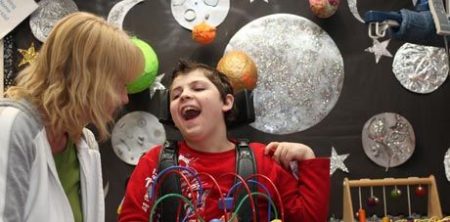Understanding Special Needs in Educational Settings
Special needs education is a dynamic and critical field that requires compassion, expertise, and a holistic approach to supporting diverse learners. Every classroom is a unique ecosystem of individual learning styles, challenges, and potential, demanding educators to be flexible, innovative, and deeply committed to inclusive education.
Foundational Principles of Inclusive Education
- Recognizing Diversity in Learning
Special needs encompass a wide range of conditions and learning differences:
Cognitive disabilities
Physical impairments
Neurodevelopmental disorders
Emotional and behavioral challenges
Sensory processing differences
Key Considerations
No two students are identical
Individual strengths matter as much as challenges
Holistic assessment is crucial
Flexibility is the cornerstone of effective teaching
- Creating an Inclusive Classroom Culture
Developing an environment of acceptance and support involves:
Promoting empathy
Challenging stereotypes
Celebrating individual differences
Fostering mutual respect
Developing peer support systems
Cultural Transformation Strategies
Implement inclusive language
Develop peer mentorship programs
Create collaborative learning opportunities
Teach emotional intelligence
Recognize and challenge unconscious biases
Comprehensive Instructional Approaches
- Individualized Education Plans (IEPs)
The cornerstone of special needs education is a personalized approach:
Comprehensive initial assessment
Collaborative goal setting
Measurable objectives
Regular progress monitoring
Adaptive intervention strategies
IEP Development Process
Multidisciplinary team involvement
Student and family input
Clear, achievable goals
Flexible implementation
Continuous evaluation
- Differentiated Instruction
Adapting teaching methods to meet diverse learning needs:
Multiple representation of content
Varied assessment methods
Flexible learning pathways
Personalized learning strategies
Adaptive technology integration
Differentiation Techniques
Provide multiple learning materials
Use varied instructional formats
Offer choice in learning activities
Implement tiered assignments
Utilize assistive technologies
- Assistive Technologies and Tools
Technological innovations support diverse learning needs:
Adaptive learning platforms
Communication assistance devices
Sensory regulation tools
Specialized learning software
Accessibility technologies
Technology Integration Strategies
Personalized technology selection
Comprehensive training
Ongoing technical support
Regular technology assessment
Ethical technology use
Supporting Emotional and Social Development
- Social-Emotional Learning (SEL)
Addressing the holistic needs of students:
Emotional regulation skills
Social interaction support
Self-advocacy development
Resilience building
Confidence enhancement
SEL Implementation Approaches
Explicit emotional skills teaching
Safe emotional expression spaces
Peer support networks
Counseling integration
Trauma-informed practices
- Behavioral Support Strategies
Positive and proactive behavioral management:
Understand underlying behavior triggers
Develop consistent response strategies
Create supportive behavioral frameworks
Implement positive reinforcement
Teach self-regulation skills
Behavioral Intervention Methods
Functional behavior assessment
Positive behavior support plans
Clear expectation communication
Consistent, predictable responses
Collaborative problem-solving
Collaborative Support Ecosystem
Holistic Approach to Special Needs Education
Successful support requires:
Interdisciplinary collaboration
Continuous professional development
Family partnership
Community involvement
Systemic support mechanisms
Collaboration Strategies
Regular multidisciplinary meetings
Transparent communication channels
Shared goal development
Consistent progress tracking
Flexible support adaptation
Challenges and Ethical Considerations
Promoting Neurodiversity and Inclusion
Modern special needs education emphasizes:
Respecting individual differences
Challenging deficit-based models
Promoting strengths-based approaches
Supporting self-determination
Creating truly inclusive environments
Professional Development for Educators
Continuous Learning and Growth
Effective special needs education requires:
Ongoing training
Reflective practice
Cultural competence
Empathy development
Adaptive teaching skills
Professional Growth Strategies
Regular specialized workshops
Peer learning communities
Action research opportunities
Reflective practice frameworks
Mentorship programs
Conclusion: Empowering Every Learner
Teaching students with special needs is a profound journey of understanding, adaptation, and empowerment. By embracing comprehensive, compassionate, and individualized approaches, educators can create transformative learning experiences that recognize and celebrate the unique potential of every student.
Key Principles
Individualization is essential
Holistic support matters
Celebrate diverse learning
Promote inclusive environments
Continuously adapt and grow

